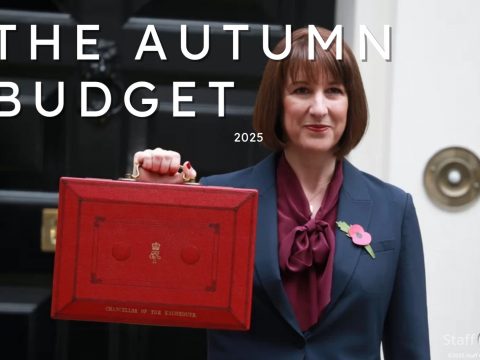- Contact us:
- 03300 535 600
- [email protected]

The Unexpected Upside: Why Your Commute Might Be Doing You Good
June 11, 2024
This Week in Work: 21/10/24
October 21, 2024The UK government is set to overhaul the way sick notes are issued, with a new pilot scheme aiming to reduce the number of people out of work due to long-term health conditions. The initiative, dubbed “WorkWell,” will be rolled out across 15 areas in England from October 2024.
The Problem with the Current System
The government has expressed concerns about a “sick note culture” in the UK, where a significant number of people rely on fit notes to justify absence from work. According to recent figures, almost 11 million fit notes were issued last year, with the vast majority stating that the individual was “not fit for work.” This has led to criticism that the system is being misused and is contributing to a rise in long-term sickness absence.
Prime Minister Rishi Sunak has been vocal about his desire to tackle this issue, stating that the current system is being “undermined” by “subjective and unverifiable claims” about capability. The government argues that the overhaul is necessary to support people back into work and reduce the burden on the welfare system.
Where will WorkWell be Piloted?
Health secretary Victoria Atkins said that ‘too often’ people with disabilities or health problems ‘fall out of work with no support’.
She said: ‘We have a plan to change that and improve lives so everyone has the opportunity to find fulfilling work.
‘This service will help tens of thousands of people, who will receive joined-up work and health support, tailored to their individual needs.’
NHS Confederation chief executive Matthew Taylor said it is ‘fantastic’ that 15 ICBs can start implementing plans to ‘provide more intensive, early-intervention support’ to their populations.
WorkWell will initially be piloted in the following areas:
- Birmingham and Solihull
- Black Country
- Bristol, North Somerset and South Gloucestershire
- Cambridgeshire and Peterborough
- Cornwall and the Isles of Scilly
- Coventry and Warwickshire
- Frimley
- Herefordshire and Worcestershire
- Greater Manchester
- Lancashire and South Cumbria
- Leicester, Leicestershire and Rutland
- North Central London
- North West London
- South Yorkshire
- Surrey Heartlands
How Will WorkWell Work?
The WorkWell pilot will test a number of changes to the way fit notes are issued and how people with health conditions are supported to stay in or return to work. Key elements of the pilot include:
- Specialist assessments: Rather than relying on GPs to issue fit notes, the pilot will introduce specialist work and health professionals to carry out assessments. The government has yet to provide details on the qualifications or experience required for these professionals.
- Focus on work and health conversations: The new system will emphasize discussions about an individual’s health condition and how it impacts their ability to work, with the aim of developing a plan to support them to stay in or return to work.
- Integration with employment support services: WorkWell will connect people with local support services, such as job coaching or vocational rehabilitation, to help them overcome barriers to work.
Concerns and Criticisms
While the government aims to improve support for people with health conditions, the new scheme has raised concerns among healthcare professionals and patient groups. Critics argue that:
- GPs are already overstretched: Placing additional responsibilities on GPs, who are already facing significant workload pressures, could lead to delays in issuing fit notes and impact patient care.
- The focus on work could be detrimental to health: Prioritizing work over health could put pressure on individuals to return to work before they are physically or mentally ready, potentially exacerbating their conditions.
- The scheme could stigmatize people with long-term health conditions: The government’s rhetoric around “sick note culture” could create a negative perception of people with health problems, leading to discrimination and prejudice.
It remains to be seen whether the WorkWell pilot will achieve its goals of reducing sickness absence and supporting people back into work. The success of the scheme will depend on careful implementation and ongoing evaluation.
Sources:
- GOV.UK: https://www.gov.uk/government/news/pm-to-overhaul-benefits-system-and-tackle-britains-sick-note-culture-in-welfare-reform-speech
- HR Magazine: https://www.hrmagazine.co.uk/content/news/government-to-pilot-new-service-to-tackle-sick-leave/
- Pulse Today: https://www.pulsetoday.co.uk/news/workload/government-names-15-icbs-which-will-pilot-fit-note-reform/




